So you had the idea, you’ve written your script, you’ve gathered finance – now comes one of the most talked-about, fun and indeed daunting parts of the filmmaking process: CASTING. A good cast challenges its filmmakers, can bring out nuances of the story that even the writer didn’t know were there, and can make the audience connect with the characters in such a way that they’ll end up loving the bad guy. On the other hand, a bad cast can turn the audience against the film and lose the story in the process.
The written page is where you first form the character and that is exactly where your search starts.
We let the story inform the characters rather than the other way around. The characters changed and shifted with each draft, and it wasn’t until we felt we had fully discovered them that we started putting out feelers for actors. We wanted to really understand who each character was and how they served the story. – Rachel Noll, Producer of The Storyteller.
With so much riding on the shoulders of the cast, how does a filmmaker even begin to build their team?
Since we are shooting in Indiana, our original plan was to cast all local Indiana actors. We assumed we would have a cast of mostly unknowns and our main priority in thinking about casting was making sure our actors had the skill and talent to bring the roles to life. – Rachel Noll, Producer of The Storyteller.
The casting process is literally a search and the first step is to decide how you want to conduct that search. Do you want to bring a Casting Director on board the project or do you, the filmmaker, want to conduct the search yourself?
Option One: The Casting Director
A Casting Director (also know as a CD) is a person who aides the filmmaker and facilitates the search for actors for each role by contacting agents/managers/actors, scheduling and holding auditions. They specialize in being aware of what the filmmaker and production is looking for while keeping an eye out for that special quality that an actor can bring to the part. A CD is an outside eye – one trained to think and not only look at how an actor performs in the audition, but how they’re capable of performing. They can be champions for the actors, while also guarding the filmmaker’s best interests.
Many of the most famous actors owe as much of their careers to casting directors as they do to, say, directors. Here’s the trailer to a documentary on one of those pioneering CDs, Marion Dougherty. It’s well worth the watch.
Wanna learn more? Check out this round table discussion by some of Hollywood’s hardest working CDs.
Option Two: The Filmmaker as the Casting Director
We decided to not use a casting director. The main reason being that our budget is so tight and I have some experience in casting myself. We felt we had the know-how to do at least a first round of casting calls ourselves, and if we didn’t find who we were looking for, we had talked about reaching out to a CD for the next round to help us find our key roles. In our case, it turned out not to be necessary. I in no way mean to diminish the role of a CD, as they are invaluable to a production and have resources and connections that can really enhance a films casting pool, we were simply lucky in that we got a lot of interest and were connected with bigger actors without the aid of a Casting Director and found our cast before bringing anyone on. – Rachel Noll, Producer of The Storyteller.
Oftentimes low-budget productions do not have the option of bringing in a CD. The filmmakers will instead organize, search and audition the actors themselves. Do not look at this as a disadvantage. This means that you, the filmmaker, get the opportunity to meet and discuss your story directly with every actor and find exactly the best cast for your film – and most likely learn something new about your project in the process. Such is the case with the Cast of The Storyteller.
If you know who will be casting your project, the next step is understanding how.
The first step with casting is to break down the roles. This means that you (or your CD) go through the script, list all the characters that need to be cast and compose descriptions for each role. Descriptions should include an age range for the character, their ethnicity, and a brief overview of the character. This is the first chance actors have to get a sense of your character, so your descriptions need to communicate not only personality, but how that character fits into the story.
Can you guess the character from this breakdown?
MASKED HERO: 16-20, any ethnicity. This high school student was once a normal, science-loving, picture-taking nobody, but that all changes when he comes in contact with a radioactive spider. Endowed with strength, speed and agility, this webhead must battle the world’s greatest villains while trying to keep his identity a secret, get the girl and survive high school.
Once you’ve compiled your list of roles, you’ll then post those roles on a casting website. It’s on those sites that actors can read about your project, the roles you are casting and submit themselves for your review. The most prominent casting sites in the US are Breakdown Services and LA Casting.
The thing that stood out with everyone we called back was a connection to the character. It didn’t seem like they were reading lines, it didn’t feel forced or like they were “acting” – I felt like I was seeing the character come to life through them. They took their time. They listened. They responded honestly. Every person brought something different, but it was immediately apparent who really connected with the lines and made them their own. Some were off book, some weren’t. Some filmed themselves with a professional set up, others on an iPhone. Ultimately none of that mattered. The people who connected with the character and expressed it honestly were the ones who stood out. – Rachel Noll, Producer of The Storyteller.
Once a project has been posted and the actors (or their representatives) have submitted, then comes the – to some people fun, to others terrifying – process of bringing actors in to audition. It’s a daunting process for both parties. You, the filmmaker, want to find the “perfect” actor. You want the actor coming through the door to be “the one!” Similarly, the actor coming through the door wants to do their very best – and be “the one.”
The ultimate key to casting, however, is that there is no “the one.” For the filmmaker: You’re searching for that spark that will bring your story to life. For the actor: It’s not always about whether or not you can act; it’s about whether you are right for that part.
Just as every scene builds on one another, so does each member of the cast. With one role filled, your audition process evolves. Does the auditioning actor have chemistry with the lead? If you’re casting a family, do they look a like?
Okay, but Heather – my production isn’t shooting in LA. Won’t that hinder my chances of finding the best cast?
In today’s digital age, not casting in LA won’t slow down your production. Case in point; The Storyteller!
We had actors do a self-tape for the initial audition and then asked some of the actors to come to a round of in-person callbacks. We asked actors to submit only if they could work as an Indiana local hire, and ended up with a list of actors based in Los Angeles and Indiana areas, so we set up callbacks in both cities. Right around the time we started scheduling the callbacks we started getting approached by people offering to connect us with actors with a little more experience, so we started taking meetings and talking with actors outside the initial pool of actors we auditioned as well. - Rachel Noll, Producer of The Storyteller
Even the best and some of the biggest stars will put themselves on tape for a role. Check out this featurette that includes the tape of Rachel McAdams auditioning for a little film called The Notebook.
Filmmakers, remember: Casting is where the relationships between the characters come to life. It’s also where your relationship with the actors begins. Thus, assembling your cast must feed your story, your vision and your production. And keep in mind that you will be working long, hard days with the cast, so be sure to assemble a team that will get along.
We built our cast based around a number of factors. Talent and experience are obvious ones, but beyond that, we really took the time to get to know each actor, to talk with them about the role and the story and make sure they understood what we were doing, and connected with the script and the way we were going about filming it. On such a low-budget production, passion is really the fuel and the glue that will hold the shoot together, so the cast we ultimately assembled is full of people who came at it heart first, just as we have.- Rachel Noll, Producer of The Storyteller
For more information about the practicalities of posting breakdowns and starting your search, Breakdown Services is a great resource. They have staff on call to answer your questions and also provide in-depth explanations throughout the process online.
Join us next time when we’ll be discussing locations: How to secure locations based on budget and story. Until then, here’s a featurette exploring how one of the most famous and beloved 80s movies had a very different actor originally cast in the lead role.

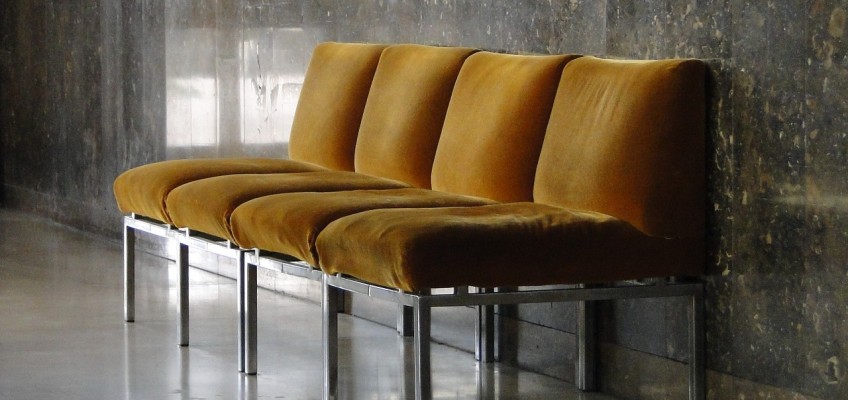

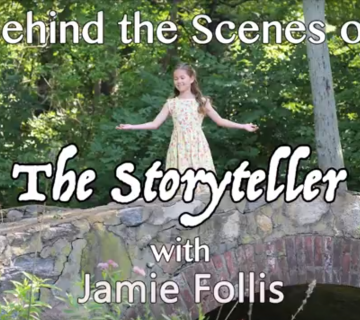
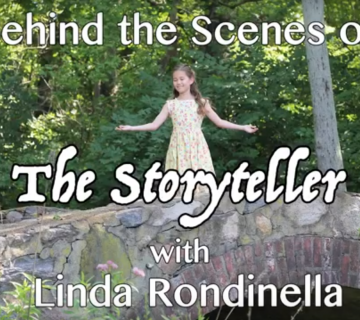
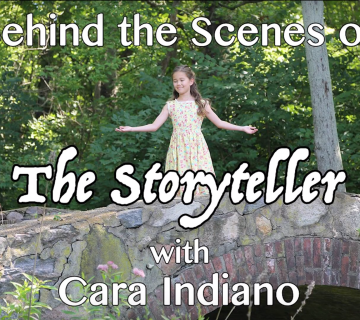
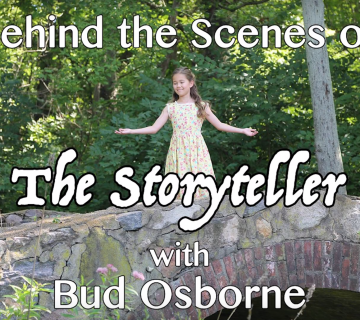
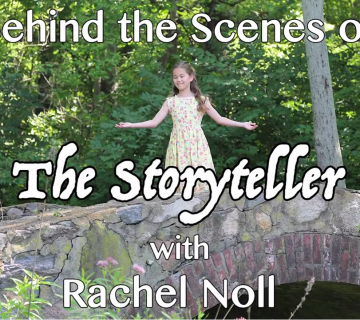
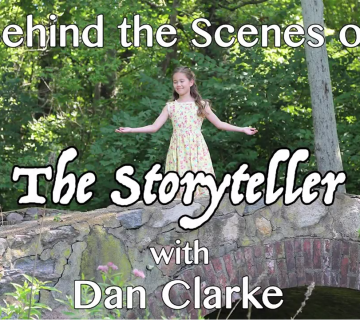

Join the Conversation →